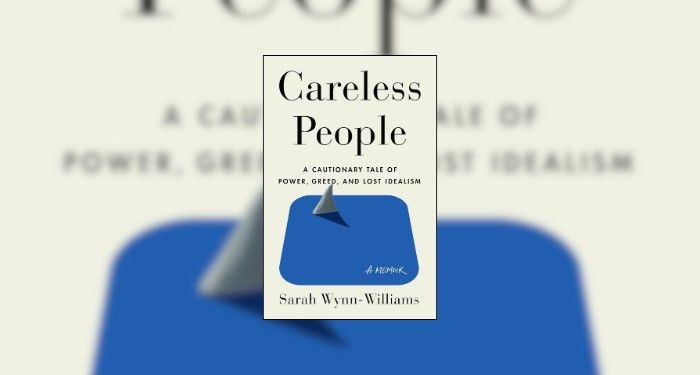Justice is the foundation of free societies. Despite its subjective nature, we expect it across all our interactions. Yet, we also understand that, at least in today’s world, justice is neither perfect nor consistently served. While great progress has been made to promote justice in the modern workplace, injustice persists there too. Nevertheless, there are concrete measures we can take to minimize workplace injustice and mitigate its harmful effects when it occurs. These measures can support, but also transcend, those offered by the legal system, which do not and cannot adequately address all forms of workplace injustice.
Defining Justice
Definitions of justice are complex and inconsistent, but they usually are based on notions of fairness and focus on two general sub-types. The first includes retributive or corrective justice, which addresses situations in which a fair process and set of remedies are necessary because a person may have been wronged by another. The second, often called distributive justice, addresses how limited resources should be shared in a fair manner. Aristotle offered the example of a group of flautists who do not have enough flutes for each player. He argued that justice required a fair system for distributing the flutes, such as prioritizing the best players.
Injustice occurs in the absence of justice. Aristotle’s teacher, Plato, argued that most injustice stems from human selfishness.
Workplace Justice
Ensuring corrective and distributive justice is essential in the workplace. Organizations must have fair rules and properly administered systems to enforce those rules (what some scholars call “procedural justice”). These rules may be corrective, governing conflicts or grievances involving employees or other stakeholders; or they may be distributive, addressing how jobs, compensation, promotions, and other rewards and opportunities are distributed among employees.
When these rules, which may be formal or informal, are fair and administered properly, the conditions for organizational justice are optimized. When the rules are unfair or the enforcement systems are deficient, injustice is probable. In egregious cases, injustice may lead to legal consequences, but all forms of workplace injustice can lead to employee turnover, a lack of trust, poor morale, and cultural decay. Indeed, a growing body of evidence suggests that workplace injustice can also lead to poor physical and psychological health, largely induced by stress. In turn, productivity, efficiency, and organizational sustainability are also impaired.
Addressing and Avoiding Workplace Injustice
In the workplace, some forms of injustice are better defined – and more severe – than others. These forms of injustice, including discrimination, harassment and bullying, are generally proscribed by law, and organizations are required to have rules and systems designed to avoid, address and remedy them.
Other forms of injustice are more subtle. Even in the absence of discrimination, we may still feel that we have worked harder, are smarter, or are more valuable than someone else only to see the other person earn more, advance faster, or just get more recognition (“I can’t catch a break”). Or we may feel that someone is less deserving because of what we perceive as their questionable character or the way they appear to mistreat others (“nice guys finish last”). Sometimes, it just seems that others have more luck (“some people have all the luck”); and sometimes, we may feel that we did something good only to be met with ingratitude and resentment (“no good deed goes unpunished”).
So, beyond ensuring compliance with the modern legal construct largely designed to address a select set of injustices, what else can organizations do to minimize and mitigate workplace injustices?
1. Create and maintain a “CLEAR” cultural framework that supports justice.
Legal frameworks are only as effective as their respective laws and enforcement mechanisms. While the legal frameworks applicable to some injustices have made a meaningful difference, they have not been a panacea, in part because they address the symptoms and not the underlying disease. Moreover, these legal frameworks are largely ineffective in addressing non-proscribed injustices.
A culture of candor, learning, empathy, awareness and respect (“CLEAR”) may not completely cure the disease of injustice, but it will turn that serious, if not fatal, disease into a chronic, manageable one. Leadership must set the right example, but it must also encourage and facilitate honest, constructive discussions among employees about the challenges they face and how they can be addressed.
Lifelong learning – including about our differences – must be celebrated. As for specific employee education, it must not be limited solely to programs designed to avoid injustices with potential legal consequences and must include broader programs designed to avoid all potential injustices by maximizing the understanding that we all see and experience things differently.
And personal feelings and emotions must be acknowledged while also encouraging employees to have greater awareness not only of their own feelings but also those of others. Ultimately, respect must be embedded as a core value of the organization.
2. Practice remorse and forgiveness.
In some cases, people who have committed injustices cannot be allowed to communicate further with the aggrieved parties. In other cases, however, injustices can be addressed – and further injustices avoided – by constructive, mediated dialogue. Ideally, that dialogue would include the offer of a sincere apology by the offender and a willing acceptance by the recipient.
“Restorative justice,” under which offenders are increasingly encouraged to take responsibility for their actions as well as seek forgiveness and redemption, is increasingly seen as more effective than traditional retributive or corrective justice – not only in the criminal context but also in schools and other social settings. For some workplace injustices, restorative justice may be highly effective, provided it is voluntary, sincere and mutually agreeable.
3. Empower ourselves to persevere, learn and improve.
When all else fails and we inevitably do feel a sense of injustice, we must not allow ourselves to become paralyzed by resentment and anger. Life is often unfair, but life is also finite. We must persevere, and we must not allow ourselves to be pulled down further by those with whom we may feel at odds.
We can also remember that justice is not always easily perceptible. It may be served in ways that we do not see. Without arguing the case for karma, unkind, uncaring, and unethical people often have a way of bringing justice upon themselves by virtue of their diminished or dysfunctional relationships as well as the permanent tarnish they place on their legacies – usually without any awareness by them.
Above all, at least some forms of injustice offer us opportunities for learning and improvement – both individually and for the benefit of our organizations. Understanding why it happened and how it can be addressed and prevented in the future is at least an opportunity to help others, if not ourselves. The key is to do something, such as advocating for organizational improvement, helping someone else avoid a similar injustice through education, or just seizing the opportunity to become stronger, wiser and more resilient. As Jean-Jacques Rousseau said, “to see injustice and do nothing about that means to participate in it.”
The post A CLEAR Approach To Ensuring Workplace Justice appeared first on ChiefExecutive.net.







































































